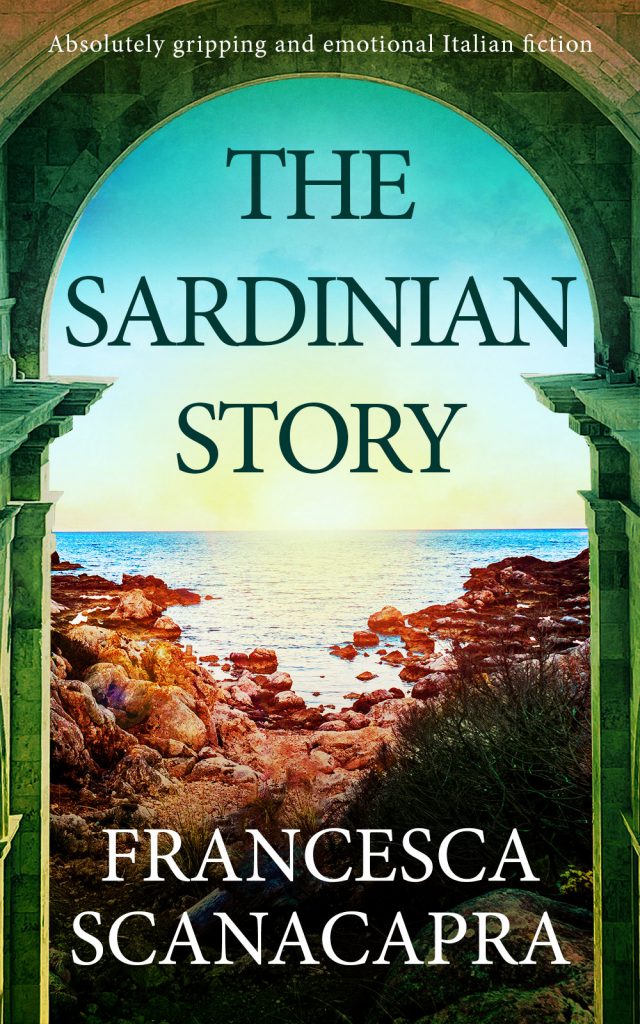
Apennine Mountains, Italy, 1965
Leonora Bacchetti was once a happy child. But at the age of seventeen she has become a wild and rebellious young woman who leaves her parents in despair when she runs away from home with a group of itinerant travellers.
In the eyes of their friends and neighbours in the tight-knit village of Montacciolo, her parents’ good name is ruined.
At first, Leonora keeps in touch with her mother and father, sending letters and postcards from different countries until, very abruptly, her correspondence stops. The girl has vanished.
Vague, unreliable rumours of her fate abound, but newspaper appeals, police and private investigations reveal nothing.
Until, eighteen years later, in the midst of a snowstorm, a stranger from Sardinia knocks on the door of Leonora’s father’s little mountain house.
Now a widower, he has come to terms with never knowing what happened to his daughter. But everything changes when the unexpected visitor claims that he has new information.
The two men quickly bond and gradually begin to piece together the truth about Lenora, provoking deep questions about her life and how they have lived their own – questions about love, loyalty, honesty and what being a family really means.
The Sardinian Story is a novel of exquisite power and deep emotion which will live long in the memories of its readers.
Purchase Links
https://www.amazon.co.uk/Sardinian-Story-absolutely-heartbreaking-unputdownable-ebook/dp/B0CF5ZVTRY
https://www.amazon.com/Sardinian-Story-absolutely-heartbreaking-unputdownable-ebook/dp/B0CF5ZVTRY
Francesca Scanacapra was born in Italy to an English mother and Italian father, and her childhood was spent living between England and Italy. Her adult life has been somewhat nomadic with periods spent living in Italy, England, France, Senegal and Spain. She describes herself as ‘unconventional’ and has pursued an eclectic mixture of career paths – from working in translation, the fitness industry, education and even several years as a builder. In 2021 she returned to her native country and back to her earliest roots to pursue her writing career full time. Francesca now resides permanently in rural Lombardy in the house built by her great-grandfather which was the inspiration for her Paradiso Novels: Paradiso, Return to Paradiso and The Daughter of Paradiso. Her novel The Lost Boy of Bologna was also published by Silvertail Books.

Social Media Links –
Twitter https://twitter.com/FrancescaScana2
Insta @francescascana2
~Guest Post~
THE INSPIRATION FOR THE SARDINIAN STORY
I had a friend when I lived in Mallorca, whom out of respect for her family I will refer to only as ‘T’. We were drawn to one another from the moment we met in a lift. I can’t remember how the ice was broken, or who broke it, but it took no longer than the time for the lift to descend from the second to the ground floor for us to be laughing at the same thing. Thus began the most tumultuous friendship of my life.
T and I came from different continents and from very different cultures, but we shared a love for art, literature, languages, adventure, and a sense of humour which left us breathless with giggling fits. She was clever, witty, outrageous, creative, and endowed with a level of bravery which often strayed into recklessness. I had never met anyone who had managed to get themselves into, and out of, so many sticky situations. There was always something extraordinary happening in T’s life – a madcap scheme; a passionate, short-lived love affair; a stroke of incredible luck; or some sort of calamity, usually provoked by a catastrophic lapse in common sense. We disagreed at times, but amidst all the commotion, T and I shared a close, affectionate and life-enriching friendship.
In 2010 I moved back to the UK. T and I kept in touch and she travelled over to see me, but shortly after, we fell out over something which was a big deal at the time. Following that, all contact ceased. I missed our friendship and still thought of her often, not in anger, but more out of exasperation, and with the feeling that one day, after enough time had passed, we would reconnect. Eventually, in 2021, I thought the moment had come to reach out to her. I couldn’t find her on social media, which seemed odd, so I Googled her name. The first page of search results stopped me in my tracks as one word stood out – MISSING. The photographs which appeared alongside numerous newspaper reports left no doubt that the missing woman was T.
T had disappeared in Switzerland in 2016, but nobody could say what she had been doing in that location. A handful of tenuous leads led nowhere. Her family, who lived thousands of miles away, hadn’t heard from her for months, which was not unusual as their relationship was rarely harmonious. The police found no trace of her; neither did the subsequent private investigation, funded by her parents. T, it seemed, had vanished into thin air. To this day, her case remains unresolved.
I was shocked, although perhaps not altogether surprised. Had T found herself embroiled in yet another perilous situation, only this time, one she could not extricate herself from? Had she trusted, or angered, the wrong person? Or had she simply been in the wrong place at the wrong time? Online speculation abounded, with some even conjecturing that T’s disappearance was not forced, but voluntary, and part of some experimental arts project.
My thoughts turned to T’s parents and to the ordeal they must be suffering, and it was this which planted the first seeds of THE SARDINIAN STORY in my mind.
THE SARDINIAN STORY is not T’s biography, and its protagonist, Leonora Bacchetti, is not T. However, much of T’s courage, her rebellious spirit and thirst for adventure inhabit the novel. Leonora Bacchetti disappears without a trace in Italy in 1972. Police and private investigations reveal nothing. Vague, unreliable rumours only serve to confuse the case. THE SARDINIAN STORY centres around the effect on Leonora’s mother and father, who are left floundering in the anguish and uncertainty of their daughter’s fate. When almost two decades after Leonora’s last sighting, a stranger from Sardinia turns up at her father’s house claiming to know what happened, old wounds are opened up and new questions are asked. Now widowed and in his seventies, Leonora’s father embarks upon one final mission in life to search for his missing daughter.
I hope with all my heart, for the sake of her family, that one day the mystery of T’s disappearance will be solved, one way or another. T is often in my thoughts as I look back over the friendship we shared. She would be thrilled to know that something of her irrepressible spirit has made its way onto the pages of a book.

